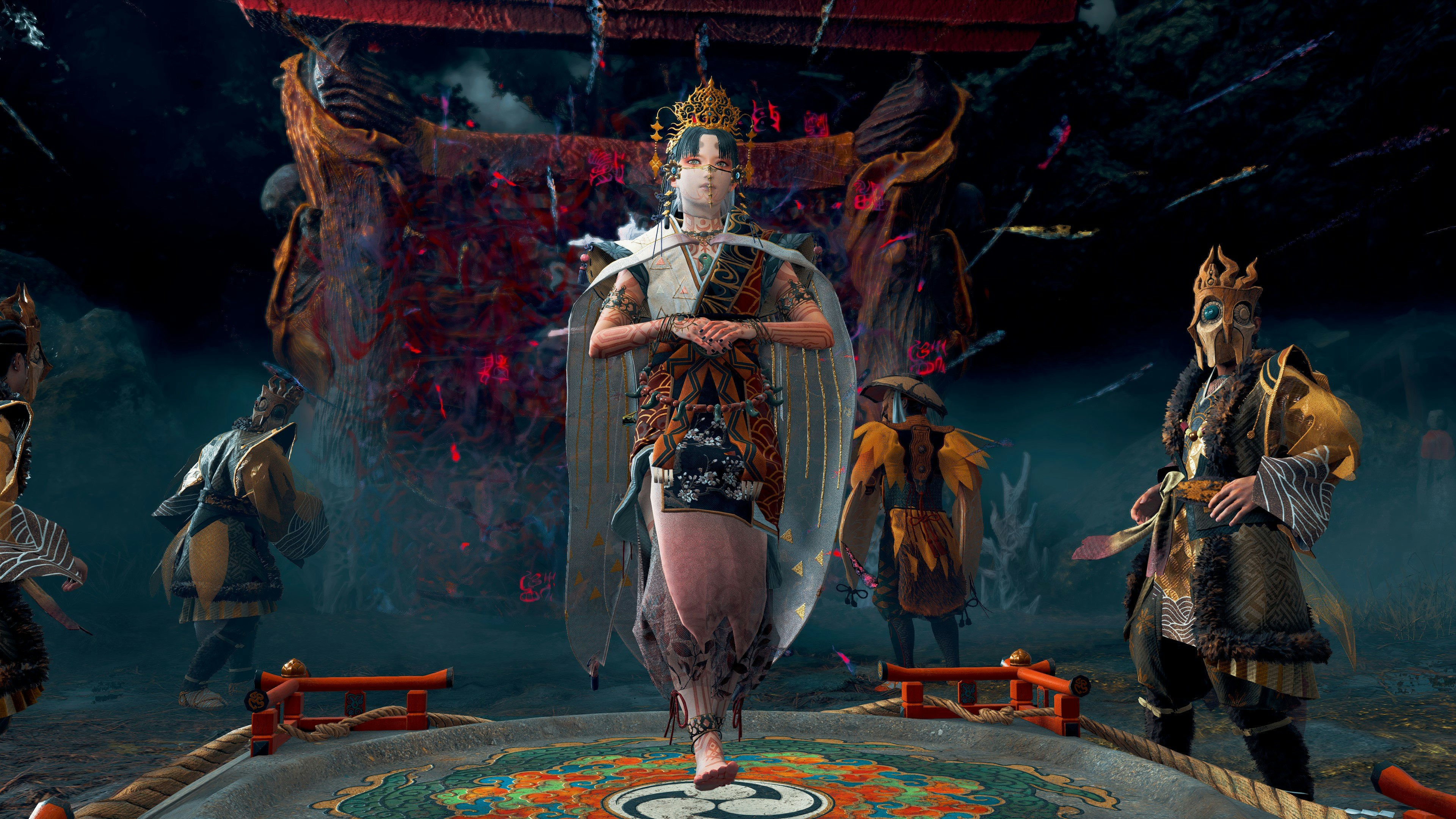
Last year, Capcom released Exoprimal, a dinosaur-infested shooter that dug its hooks into me hard, and against all odds, ended up becoming my most-played game of the entire year. It was one of my biggest surprises of the year, but what’s even more shocking is it feels like Capcom might be poised to do it again. After playing Kunitsu-Gami: Path of the Goddess, it’s suddenly become one of my most anticipated games of the year: a fascinating fusion of tower defense game with a twist — wholly unlike anything you’ve ever seen from Capcom. It’s a sleeper hit in the making.
After playing Kunitsu-Gami for over an hour, I couldn’t stop thinking about it for the next two days. It’s a bizarre, surreal, and engrossing experience, and I can’t overstate just how different it feels from anything else out there. The story doesn’t have any dialogue whatsoever, completely conveyed through context, body language, and animation. Its gameplay loop is a unique fusion of tower defense and hack-and-slash action, requiring both strategy and finesse. Then there’s its bold watercolor visual style, tying all of the game’s interface elements into its classical Japanese art. These elements all coalesce into a game that feels bold, ambitious, and unique in ways we seldom see from established studios.
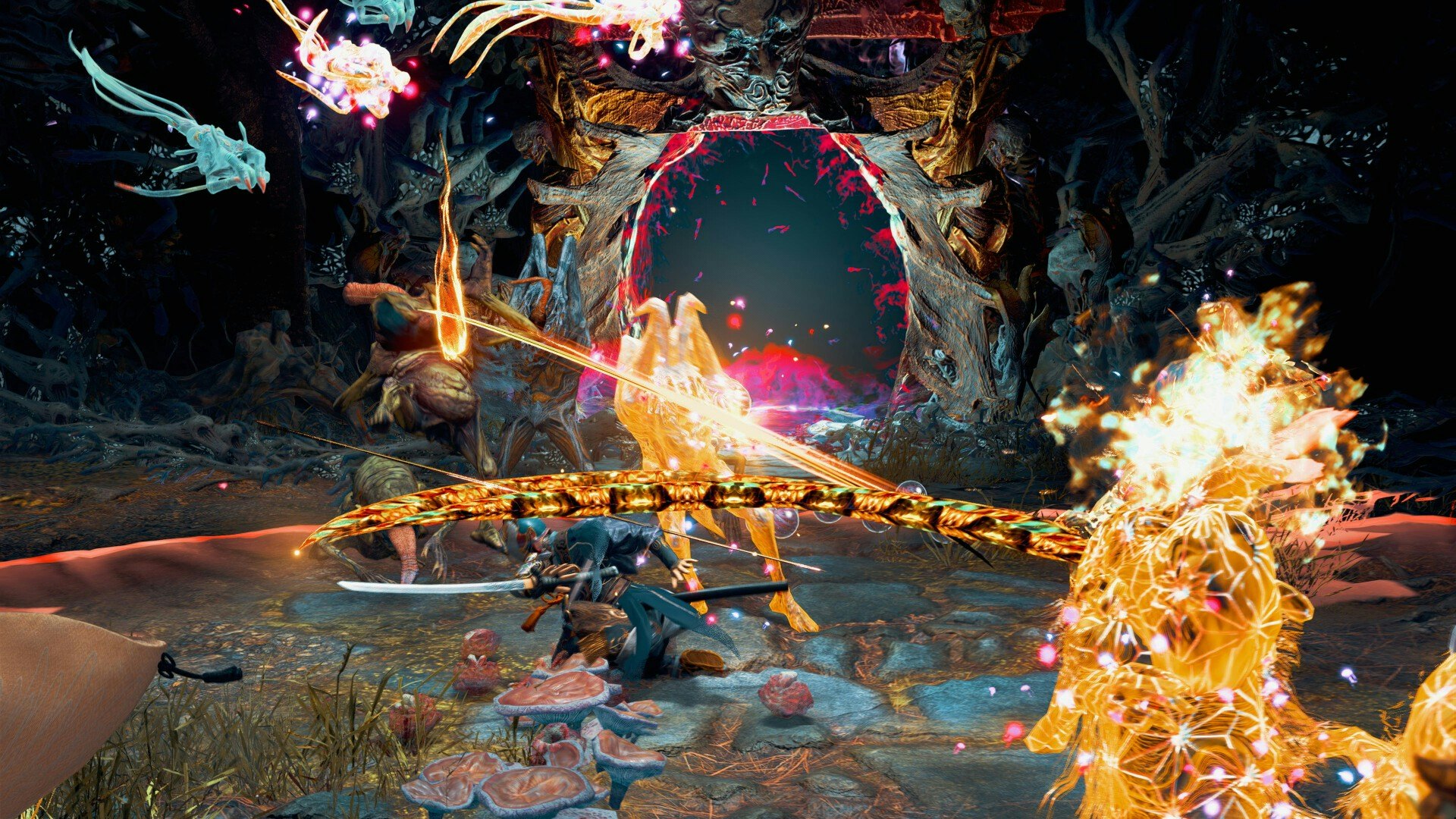
I can’t really give you a good description of Kunitsu-Gami’s story right now, all I know is you play as some kind of magical swordsman, tasked with escorting a holy maiden across an island that has been plagued by a corruption called Seethe. You share a special link with the goddess, and even though there’s no spoken dialogue, there’s definitely emotion behind Kunitsu-Gami’s storytelling, which emphasizes dramatic body movements, a dynamic soundtrack, and gorgeous painterly visuals.
The game is split up into a number of stages, with your goal in each stage simply being to escort the goddess to a gate, letting you continue your journey to purify the mountain. But this is where the big twist of Kunitsu-Gami comes in with its tower defense formula.
Most tower defense games have you defending one or multiple points, building defenses to stop enemies from traveling down the lanes and reaching your base. Here your entire goal is to defend the maiden, but she needs to travel to the gate that enemies pour out of. So instead of that point you’re protecting a moving target, which drastically changes things.
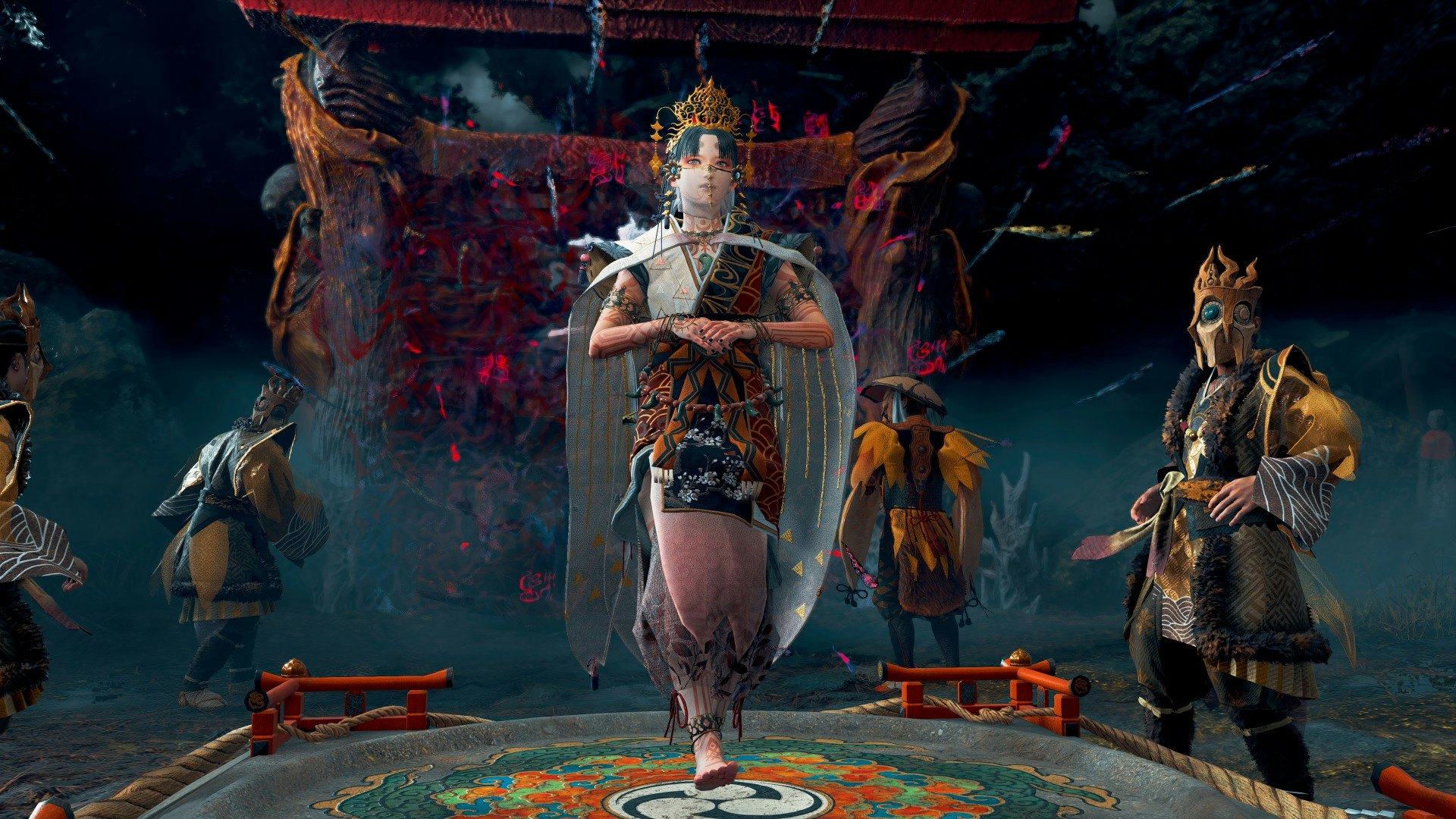
While on stages you play through a day and night cycle: in the day you gather resources, move the maiden, and purify villagers, who can then be assigned jobs and used as movable defenses all over the map. The resources you gather are used to both give villagers jobs and move the maiden, so you need to balance things and make sure you have enough defenses.
What’s interesting, though, is how Kunitsu-gami flips the script on strategy. You can’t just toughen up your villagers and dig in. As the maiden gets closer to the gate, she’ll be in more danger, as enemies need less time to gain ground. Do you horde your resources and move her across the stage in one big move after a night, or spend those resources upgrading villagers and incrementally journeying across? As far as I got in the demo, there were a handful of jobs for the villagers: a ranged archer, a melee woodcutter, and an area-of-effect sorcerer. Of course, you also have your own suite of attacks that you’ll need to use to mop up whatever gets around your defenses.
But there aren’t just normal stages, as I also encountered a boss battle set in a wide open arena, where I needed to command my villagers like Pikmin to attack and retreat from the boss, all while using my own combos.
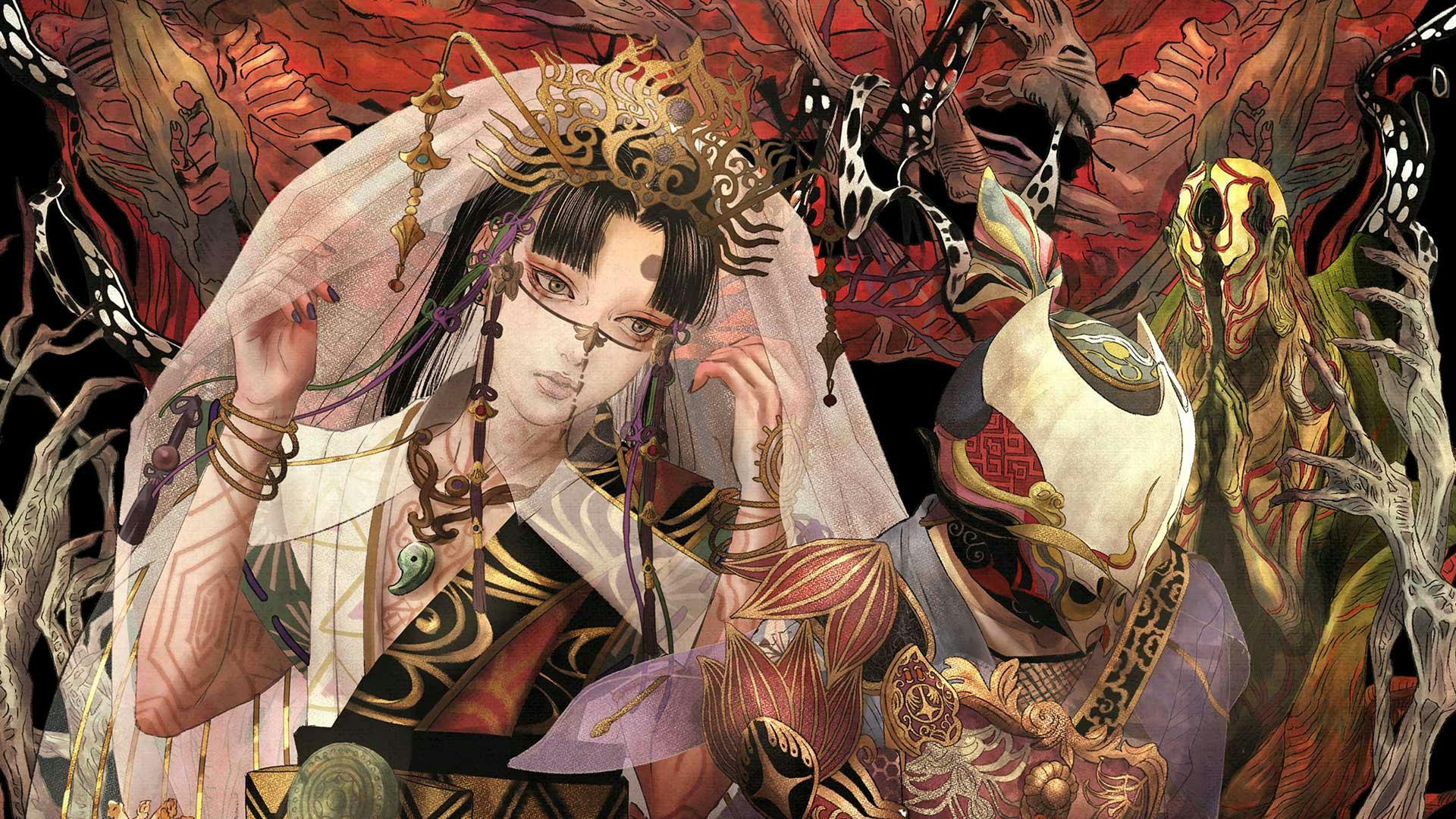
There seems to be a great amount of depth to the strategy, and there are hints of even more. After battles, you can stop at camp and invest in stat-boosting amulets, new abilities for your character, power-up villager jobs, and more. It’s got everything you’d expect out of a strategy game, but it never veers off too much into that territory. That makes me feel like Kunitsu-Gami could be the perfect game to introduce new players to the broader idea of strategy, with just enough complexity to challenge you, while the focus is still squarely on controlling your character.
But as compelling as I find the gameplay loop, it’s Kunitsu-Gami’s general aesthetic and vibe that have really drawn me to it. Every single UI element, piece of equipment, and menu is deliberately designed to fit into the game’s art style, almost like a Persona game, or 2006’s adventure, Okami. It gives Kunitsu-Gami a phenomenal sense of style that’s effective at immersing you in the world.
There’s another element here, though, as Kunitsu-Gami’s developers created multiple environments and items in real life that were used in the game. The team built a variety of miniature buildings to scan into the game, as well as gorgeous food created by a renowned Japanese confectioner named Tsuruy Yoshinobu.
“We wanted to put the size of the miniatures into reality. What would it look like if we shrunk these items down, and put them into a TV?” director Shuichi Kawata tells Inverse, “But also with how you’re looking at the miniatures, you look at it from a higher perspective than usual, and the story is based on the spirit of a god. So it gives you the feel that you’re a god looking down at them.”
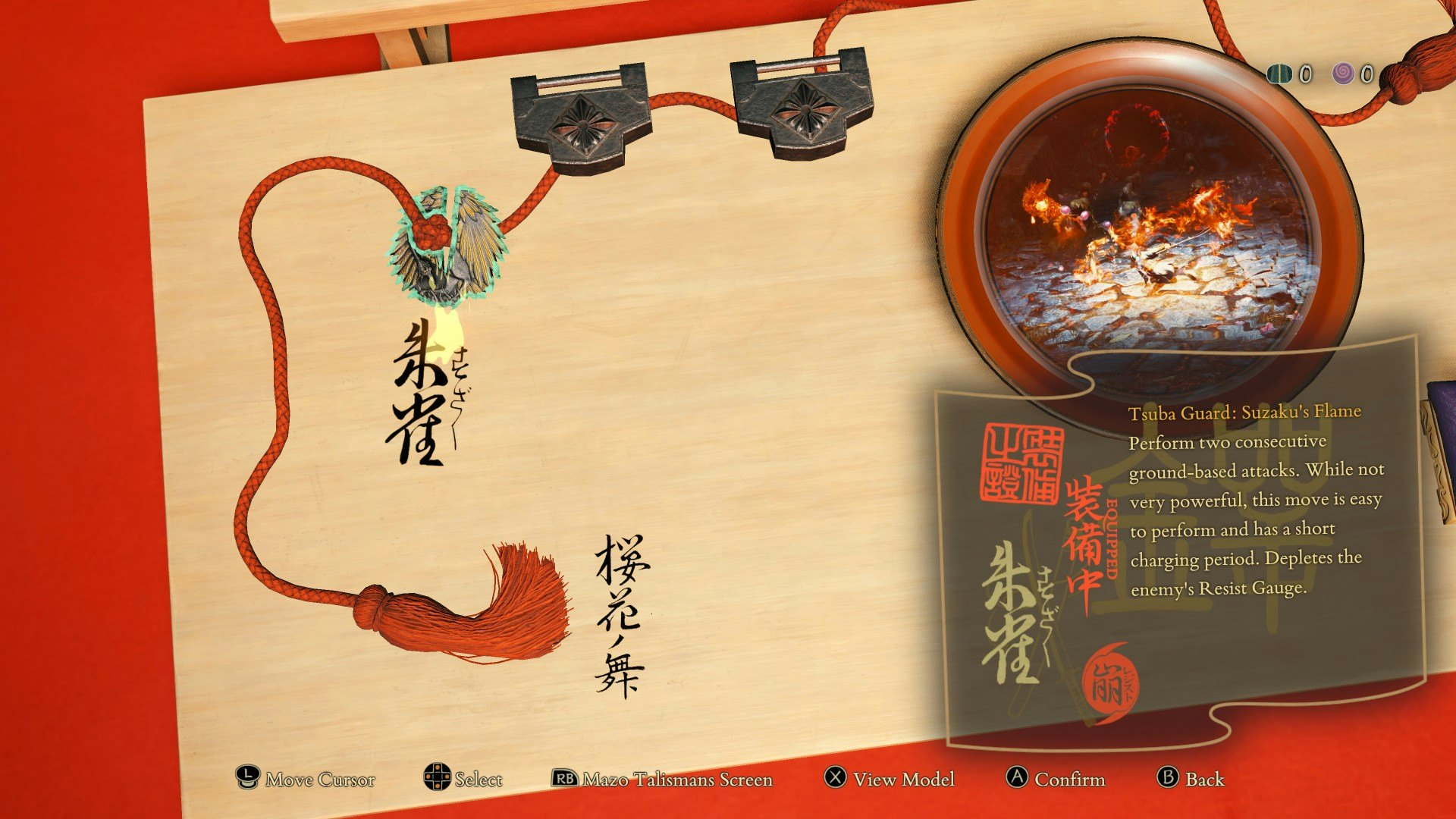
It’s an effective technique that adds a kind of uncanny realism juxtaposed against the almost alien, paranormal environments and enemies. It gives the entire game a dreamlike quality, and it’s that level of surrealism that I find so incredibly compelling.
I went into Kunitsu-Gami not really knowing anything it was about, but just one hour was enough to convince me I was ready to play through the entire thing. It’s so incredibly refreshing to see a big publisher like Capcom put out something so wildly imaginative, so devilishly experimental. But that might not be a mistake, according to what Kunitsu-Gami’s producer, Yoshiaki Hirabayashi, tells Inverse.
“When users play this game, we’d like people to feel that Capcom not only treasures their series, but also really treasures creating new experiences and taking on the challenges and risks of creating new IP.”







